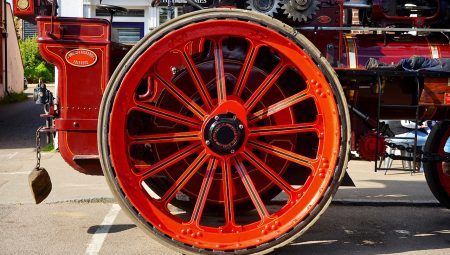Replacing the engine mount in your 2008 Honda Fit can seem daunting, but with the right tools and guidance, it’s totally doable! Engine mounts are the unsung heroes of your vehicle, keeping your engine stable and minimizing vibrations. If you’re feeling a bit of a shake or hear some odd noises, it might be time for a replacement. This guide will walk you through everything you need to know, from the tools required to the step-by-step process, ensuring you’re well-prepared to tackle this project.
Not only will you save money by doing it yourself, but you’ll also gain a deeper understanding of your car. Let’s dive into the essentials of engine mounts and how to replace them like a pro!
Understanding Engine Mounts
Engine mounts play a vital role in your vehicle’s performance. They are the unsung heroes that secure the engine to the frame, acting as a buffer against vibrations and shocks. Imagine driving a car without them; the engine would bounce around like a basketball, leading to chaos under the hood! These mounts not only stabilize the engine but also help maintain proper alignment, ensuring smooth operation.
Over time, engine mounts can wear out due to constant exposure to heat, vibrations, and the weight of the engine. Recognizing the importance of these components is crucial for any car owner. If you’re feeling excessive vibrations while driving or hearing strange noises, it might be time to check those mounts. Remember, a little attention can prevent a lot of headaches down the road!
Symptoms of a Failing Engine Mount
Recognizing the is key to preventing more serious issues down the road. If you notice excessive vibrations while driving, it might feel like your car is dancing on the road! This can be a clear indicator that the engine mount is no longer absorbing those pesky vibrations. Additionally, listen for unusual noises such as clunks or thuds, especially when accelerating or decelerating. These sounds can signal that the engine is misaligned, which not only affects performance but also compromises safety.
Other signs include a noticeable shift in the engine’s position, which may be observed under the hood. If you see the engine moving more than usual, it’s time to take action. Ignoring these symptoms can lead to more costly repairs. So, if your vehicle starts feeling like it’s on a rollercoaster ride, don’t hesitate to check those engine mounts!
Tools and Materials Needed
Before diving into the engine mount replacement for your 2008 Honda Fit, it’s essential to gather the right tools and materials. Having everything at hand not only saves time but also makes the process smoother. You’ll need a few basic tools, including wrenches, jack stands, and a replacement engine mount. It’s a bit like preparing for a baking session; if you don’t have your ingredients, the cake won’t rise!
Here’s a quick rundown of what you’ll need:
- Wrenches: A set of metric wrenches will be crucial for removing bolts.
- Jack Stands: These will ensure your vehicle is stable while you work underneath.
- Replacement Engine Mount: Make sure it’s specifically for the 2008 model to avoid compatibility issues.
- Socket Set: A socket set can make loosening bolts much easier.
- Torque Wrench: To tighten bolts to the manufacturer’s specifications.
By having these tools ready, you’re setting yourself up for a successful and efficient engine mount replacement. Just remember, preparation is key, and a well-equipped workspace can make all the difference in your DIY project!
Safety Precautions
When diving into the world of engine mount replacement, safety should always be your top priority. Imagine you’re a captain navigating through stormy seas; without the right precautions, your ship could capsize! Start by wearing protective gear such as gloves and safety goggles to shield yourself from any unexpected debris. Always ensure your vehicle is parked on a flat surface and the parking brake is engaged to prevent any rolling.
Next, use jack stands to support the vehicle after lifting it with a jack. This is crucial because relying solely on a jack can lead to catastrophic failures. Before you begin any work, disconnect the battery to avoid any electrical mishaps. Remember, a little preparation goes a long way in ensuring a smooth and safe replacement process.
Lastly, familiarize yourself with the area around the engine mount. Knowing where your tools are and how to access them can save you time and prevent accidents. By following these simple yet effective safety precautions, you can tackle the engine mount replacement with confidence!
Step-by-Step Replacement Process
Replacing the engine mount in your 2008 Honda Fit might seem daunting, but with a clear step-by-step process, you can tackle it like a pro! First, ensure your vehicle is parked on a flat surface and engage the parking brake. This simple step is crucial for your safety.
Next, gather your tools—wrenches, a jack, and jack stands are essential. Once you have everything ready, lift the vehicle using the jack and secure it with jack stands. Remember, safety first! You don’t want to be under a car that’s not properly supported.
Now, it’s time to remove the old engine mount. Carefully detach it by loosening the bolts. Take your time here; rushing can lead to damaging surrounding components. Once the old mount is out, align the new engine mount in place. Make sure it fits snugly before tightening the bolts to the manufacturer’s specifications.
Finally, lower the vehicle back to the ground and take a moment to double-check your work. Start the engine and listen for any unusual vibrations or noises. If everything sounds good, congratulations! You’ve successfully replaced your engine mount. It’s like giving your car a new lease on life!
Preparing the Vehicle
Before diving into the engine mount replacement, it’s essential to prepare your vehicle properly. Start by ensuring that your car is parked on a flat surface to prevent any accidental rolling. Engage the parking brake firmly; this will keep the vehicle stable while you work. Next, gather your tools and materials nearby to avoid unnecessary trips back and forth.
Once you’re ready, use jack stands to lift the vehicle securely. This step is crucial because it not only provides access to the engine mount but also ensures your safety while you’re underneath the car. Remember, a little preparation goes a long way in making the replacement process smoother and more efficient!
Here’s a quick checklist to keep in mind:
- Park on a flat surface
- Engage the parking brake
- Gather tools and materials
- Use jack stands for safety
Removing the Old Engine Mount
When it comes to , precision is key. Start by ensuring that your vehicle is securely lifted and stable. This step is crucial to avoid any accidents. Begin by locating the engine mount, which is typically situated between the engine and the frame. You’ll need a set of wrenches and possibly a socket set for this task. Carefully detach the bolts securing the mount; remember, a little patience goes a long way!
As you work, keep an eye out for any signs of wear or damage in the surrounding components. If you notice anything unusual, it might be worth addressing before proceeding. Once the bolts are free, gently lift the mount out of its position. This might require a bit of wiggling, but don’t force it. If it seems stuck, double-check for any hidden bolts or connections.
After removing the old mount, take a moment to clean the area where the new mount will be installed. A clean surface ensures a better fit and can help prevent future issues. Remember, this isn’t just about replacing a part; it’s about enhancing your vehicle’s overall performance. So, take your time, and don’t rush this important step!
Installing the New Engine Mount
Installing the new engine mount is a crucial step that can make or break your vehicle’s performance. First, ensure that the mount is correctly aligned with the engine and the frame. This alignment is essential; think of it as fitting a puzzle piece perfectly into place. If it’s off, you might face issues down the line!
Begin by gently lifting the engine slightly with a jack to relieve any pressure on the mount. Carefully position the new mount and secure it with bolts. Remember, tightening these bolts to the manufacturer’s specifications is vital for safety and functionality. You don’t want the engine moving around like a loose tooth!
After securing the mount, take a moment to double-check your work. A quick visual inspection can save you from future headaches. Ensure everything is snug and there are no visible gaps. Finally, lower the engine back into place and connect any components you may have detached earlier. Your diligence during this process will pay off in smoother rides ahead!
Testing the Installation
After you’ve successfully installed the new engine mount, it’s time to test your work. This crucial step ensures that everything is functioning as it should. Start by taking your vehicle for a short drive. Pay close attention to any vibrations or unusual noises that may arise. If you notice any issues, it could indicate that the mount isn’t seated correctly or that there are other underlying problems.
During your test drive, consider the following:
- Listen for any strange sounds, such as clunking or rattling.
- Feel for excessive vibrations through the steering wheel or seats.
- Check the alignment of the engine; it should be stable and secure.
If everything feels right, congratulations! You’ve successfully replaced your engine mount. However, if you encounter issues, don’t hesitate to revisit your installation steps. Remember, ensuring a proper fit is essential for the longevity and performance of your vehicle.





